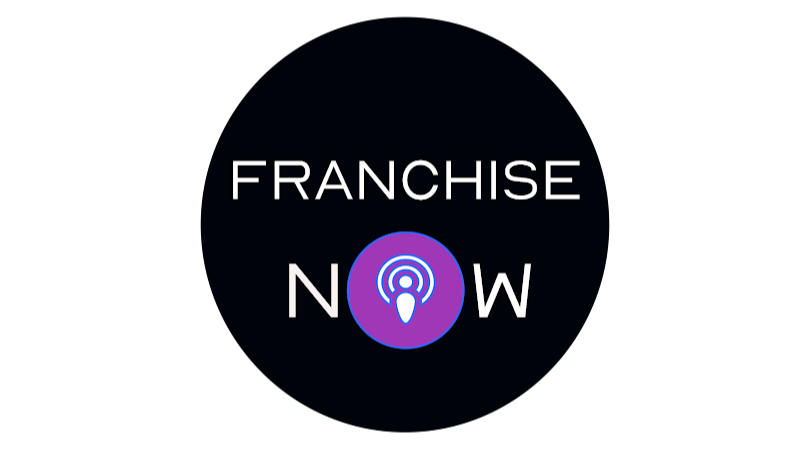Discover how franchising, technology, and empathy converge in Tim Fagan’s leadership across 1-800 WATER DAMAGE, Blue Kangaroo Packoutz, and 1-800-BOARDUP.

In a recent Franchise Marketing Radio episode, executive Tim Fagan offered an inspiring look into what it takes to lead and grow franchise brands at the intersection of disaster recovery, technology, and human service. As the President of three BELFOR Franchise Group (BFG) brands—1-800 WATER DAMAGE, Blue Kangaroo Packoutz (BKP), and 1-800-BOARDUP—Fagan has a unique perspective on what defines sustainable growth in the restoration space. The episode is a deep dive into the culture, systems, and personal leadership philosophies driving these high-impact franchise networks.
Hear the full episode and read further insights at .
Tim’s path to franchising leadership is anything but conventional. With early experience in law enforcement and education, his life was shaped by a call to service long before he became an executive. He spent years as a sheriff deputy, high school assistant principal, and football and wrestling coach. These roles demanded quick decision-making, strong interpersonal skills, and a servant’s mindset—traits he still relies on today.
Eventually, he entered the restoration industry by acquiring and scaling his family’s carpet cleaning business, transforming it into a $7 million enterprise before selling it to BELFOR. That transition gave him hands-on experience with franchise systems and the operational realities franchisees face every day.
When Fagan joined 1-800 WATER DAMAGE, the brand operated under a 50/50 managing operator model that constrained growth and autonomy. Under his leadership, the system shifted to full franchising, allowing local owners to run their businesses independently while benefiting from centralized support. Today, the brand boasts more than 100 franchisees managing over 225 territories.
That operational shift sparked greater ownership, accountability, and scalability. Franchisees became true business owners with control over local strategy, hiring, and customer service, while still plugged into the resources and protection of the BELFOR network.
BELFOR’s reach and support are among the brand’s greatest differentiators. Fagan emphasized that franchisees gain access to national contracts, advanced training, and bulk purchasing power that would be difficult to achieve independently. He shared that newly onboarded franchisees often see a 20% boost in lead conversions thanks to BELFOR’s marketing infrastructure.
Franchisees are also brought into national pilot programs that test emerging technologies—like new AI tools, estimating software, and field operations platforms—before broader rollout. This ensures local owners are always a step ahead in a competitive and time-sensitive industry.
Fagan offered detailed insights into how AI and automation are being applied across the three franchise brands. For , AI tools assist with real-time estimate generation, job scheduling, and equipment routing using 3D scanning and lidar mapping. These tools accelerate turnaround time and reduce manual errors.
Blue Kangaroo Packoutz uses AI for digital content tracking, documentation, and claims processing—improving efficiency and maintaining accurate records in emotionally sensitive environments. Meanwhile, 1-800-BOARDUP has begun piloting AI for emergency dispatch optimization, helping field teams respond faster to late-night calls and large-scale incidents.
Across all brands, AI is also used to develop training modules, create quizzes, translate materials, and even generate video tutorials. This consistent investment in learning and technology ensures franchisees stay competitive.
One of the most impactful parts of the interview centered on franchisee recruitment. According to Fagan, BELFOR’s brands don’t look for just financial qualifications—they seek individuals with emotional intelligence, community-mindedness, and the stamina to thrive in high-pressure situations.
He described “Meet the Team” days where candidates—and often their spouses—are invited to headquarters for cultural alignment. This step is crucial in ensuring the brand’s values align with the prospective franchisee’s expectations.
Fagan even recommends a unique exercise: writing down ten people who know you well and asking them to weigh in on whether franchise ownership in this sector suits you. It’s not just about the numbers—it’s about lifestyle fit, values, and long-term vision.
Franchise owners in the restoration space often face extreme circumstances. One story Fagan shared involved a franchisee who responded to a fire and water loss event at a state Supreme Court building. The building housed over 100 law firms and was damaged by both fire and sprinklers.
Despite the complexity of the project, including high expectations from state officials and legal stakeholders, the franchisee and their support network executed a large-scale packout and restoration plan while maintaining their main business operations. It was a shining example of operational planning, resilience, and the support possible within the BELFOR system.
Fagan stressed that while technology is essential, what truly sets top-performing franchisees apart is their ability to lead with heart. “Customers are often at their most vulnerable when we arrive,” he said. That emotional intelligence—checking if family members and pets are safe before discussing logistics—creates lasting impact.
He emphasized that great franchisees are built on a service-first mentality. BELFOR brands hold some of the highest review scores in the industry, including Google and Review Tracker rankings. These public-facing metrics reflect not only technical execution but also empathy and communication.
In a market where consumer trust is everything, 1-800 WATER DAMAGE, BKP, and BOARDUP stand out as examples of how franchise systems can merge local leadership with national strength. Fagan encourages franchisees to be involved in their communities—attending local chamber events, sponsoring causes, and building relationships with insurance agents and first responders.
He likens marketing to “casting a net and dropping fishing lines”—broad community engagement combined with targeted relationship-building in high-impact sectors like property management and insurance.
As natural disasters increase in frequency and severity, the restoration space is becoming more vital—and more competitive. Tim Fagan’s leadership exemplifies how franchise brands must adapt: blending innovation with empathy, and autonomy with structure.
With continued investment in technology, training, and people, BELFOR’s franchises are poised not just to grow, but to lead. For entrepreneurs looking to make a meaningful difference while building a business, the path carved by Fagan and his team offers a clear and inspiring blueprint.
Visit to hear more stories of inspiration and innovation.
